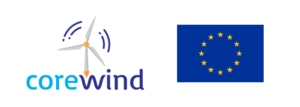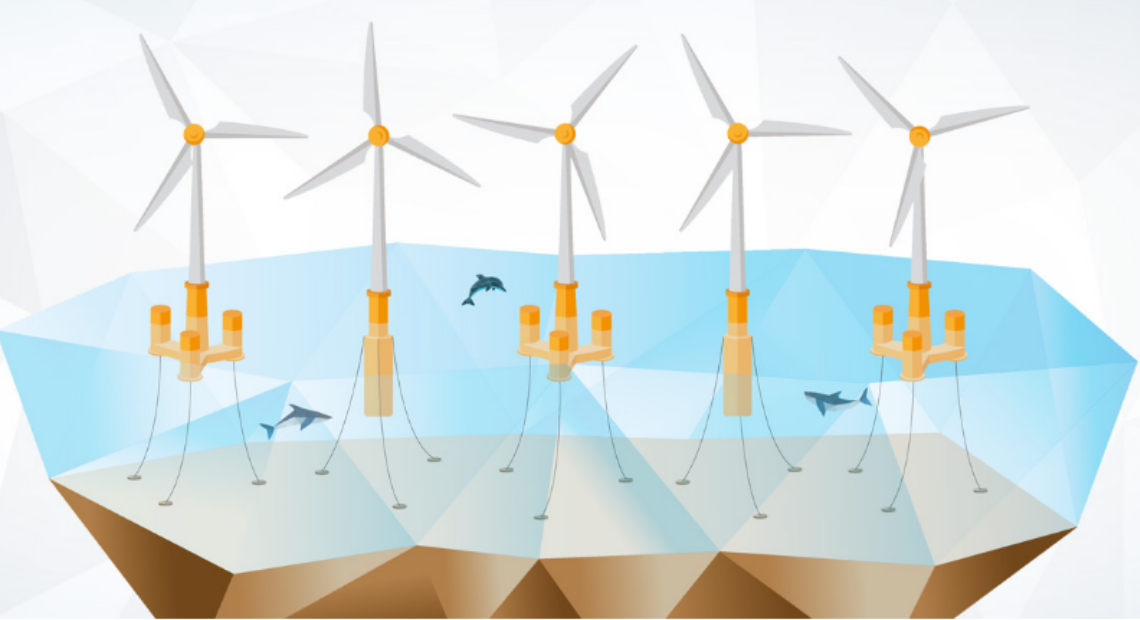Launched in September 2019, COREWIND (COst REduction and increase performance of floating WIND technology) is a Horizon 2020 project which aims to achieve cost reduction of offshore floating wind technology (15% LCOE reduction) by optimizing two components: mooring systems (including anchors) and power dynamic cables.
The project provides recommendations on best design practices, as well as open data models to accelerate the development of concrete-based semi-submersible and spar floating structures. A part of the project will focus on testing the recommended innovative designs and optimisation parameters in two concrete-based floater concepts (semi-sub and spar).
The kick-off meeting, which took place at the European Energy Research Alliance (EERA) offices on the 2nd and 3rd of September, gathered all the partners of the project and the project officer from the European Commission who will be following the implementation of the project. The partners introduced their organisations and expectations for the project and outlined the work they will be carrying out. Dr. Jose Luis Domínguez from the Catalonia Institute for Energy Research (IREC) will be leading the project and partners are both from industry and academia. These include the Technical University of Denmark (DTU), RAMBOLL, INNOSEA, Polytechnic University of Catalonia (UPC), Equinor, JDR cable systems, Polytechnic of Milan (POLIMI), University of Stuttgart (USTUTT), UL International GMBH, WindEurope, Cobra and Environmental Hydraulics Institute of Cantabria (IHCantabria).
The project will last 42 months in total and it will contribute to the achievement of EU goals related to the strengthening of EU leadership in renewables by reducing costs. This is achieved by developing the next generation of floating offshore wind, making it a key player in the power generation sector.
This project has received funding from the EU’s H2020 research and innovation programme under grant agreement No 815083.




